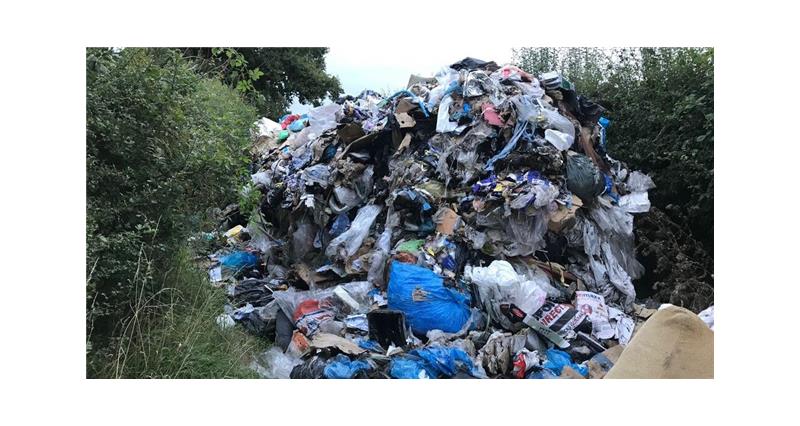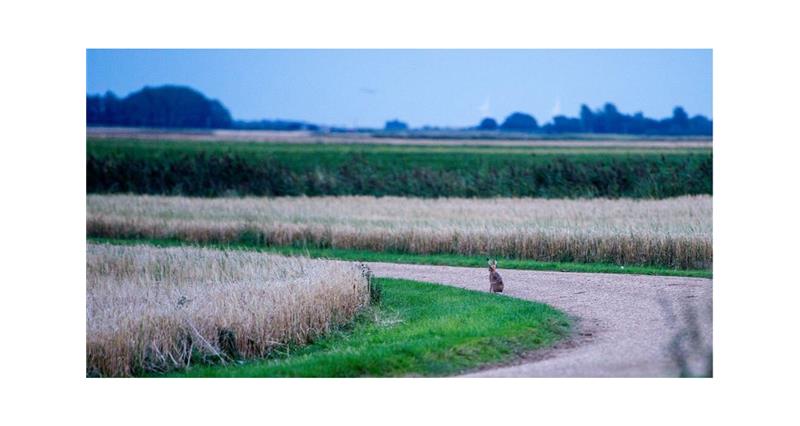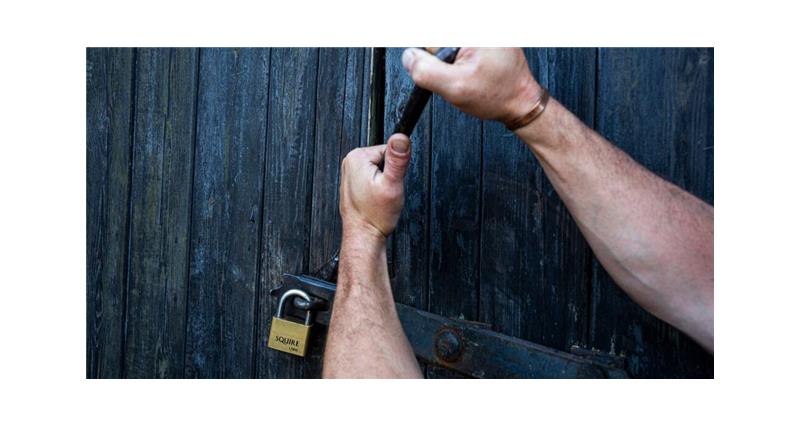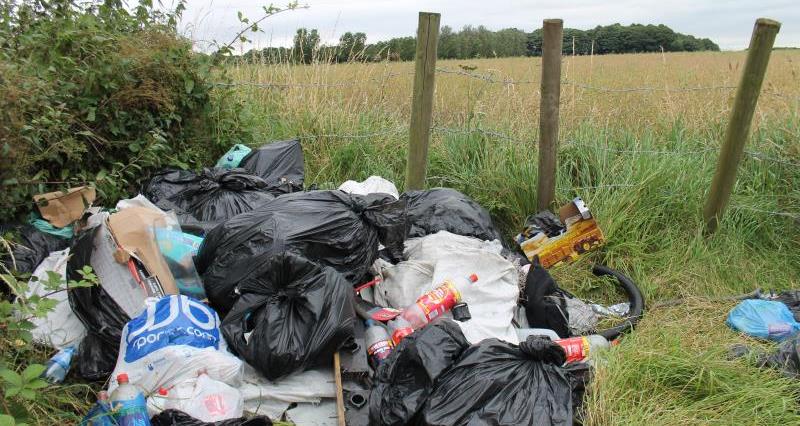Even if you are not directly impacted by the devastating effects of rural crime, you can still play a part to prevent numerous instances of crime that affect your community. Farms are targets for a variety of different crimes. These include fly-tipping, machinery and livestock theft, livestock butchery and hare coursing. The headline figures represent a snapshot of a far wider problem.
Rural crime in numbers
The NFU Mutual’s rural crime report for 2022 shows that:
- The cost of rural crime rose over 40% in the first quarter of 2022 as thieves returned to the countryside - following falls in 2020 and 2021.
- Rural crime is a concern to 50% of the rural community.
- Rural theft cost the UK an estimated £40.5m in 2021.
- 49% of respondents said fuel theft is the rural crime they are most concerned about.
- The number of dog attacks on farm animals has increased.
What you can do to help:
By keeping your eyes and ears open, identifying suspicious behaviour, and reporting anything that seems odd and unusual, everyone in your rural community is able to provide intelligence and work to make our countryside a safer place.
So if you are out and about in the countryside, be observant and report odd, unusual or suspicious behaviour. Do not intervene if you see something suspicious, but take photos as evidence if it’s safe to do so.
Not sure when to report? Use the following steps to help:
- If a crime is in progress: Dial 999.
- If you want to report a crime: Dial 101.
Top tips if you’re having a clean-out
Householders have a duty of care to ensure that their waste is disposed of lawfully. Please follow current government advice – get recycling, rubbish and waste guidance from your local council.
Make sure your waste doesn't add to the 1.09 million incidents of fly-tipping reported to local authorities in the last year.
To help, follow the S.C.R.A.P code to ensure you're doing the right thing:
- Suspect all waste carriers. Don’t let them take your rubbish until they provide proof of registration. Note their vehicle’s registration plate.
- Check that a waste carrier is registered on the Environment Agency’s website.
- Refuse any unexpected offers to have your rubbish taken away.
- Ask how your rubbish will be disposed of – seek evidence of this.
- Paperwork must be obtained: a proper invoice, waste transfer note or receipt, including a description of the waste being removed and the waste carrier’s contact details.
Failure to make the appropriate checks can result in the unsuspecting householder issued with a £400 fixed penalty notice or fined up to £5,000 by councils if your household waste is fly-tipped.
Information on common crime types:
Fly-tipping is the illegal dumping of waste on kerbsides, farm land and open land in urban environments. Incidents across the country are still high, blighting our landscape. The latest government fly-tipping statistics show that local authorities dealt with over 1 million fly tipping incidents in the year up to March 2022, a reduction of just 4% on the previous year. Given this doesn’t cover incidents of fly-tipping on private land it demonstrates how under-reported fly-tipping is. Two thirds of farmers for example have experienced fly-tipping on their land.
But with over a million incidents reported, this is still much higher than the figures recorded in 2018/2019 and 2019/2020 and part of a concerning overall trend.
Fly-tipping can be dangerous to human health, wildlife and farm animals. It blights our countryside and provides a huge problem for landowners as it’s their responsibility to pay for the costly removal. The average clear-up cost for a farmer is £1000 as increasingly significant quantities of waste are dumped.
Rupert, a farmer from the West Midlands, experiences fly-tipping on his land on a weekly basis. Instances have ranged from a few bags of domestic waste through to lorry loads of commercial waste. This lorry load of industrial waste costs £800 to remove and despite Rupert locking gates he’s still experiencing the horrors of fly-tipping on a regular basis. Greater vigilance and awareness from all members of our rural communities can help to reduce fly-tipping but as many farmers who have been victims say, even when gates are locked organised criminals come prepared to force entry.

Hare coursing is the pursuit of hares with dogs, often for the purposes of betting. It takes place on areas of flat, open land where the dogs can easily and visibly pursue the hare. It is typically carried out by large groups of people who travel long distances. It is illegal under the Hunting Act but it also has other impacts, for example: fences and gates can be damaged by vehicles forcibly trying to gain access to land.
Hare coursing is barbaric and illegal but instances are on the increase, especially towards late summer fields have been harvested. Hare coursing activity can be conducted by gangs driven by gambling, who are intimidating to farmers who often work alone in fields. They not only trespass and cause damage to property and land but also impact wildlife and instances of violence have been reported. A farmer who for obvious reasons did not wish to be identified says he fears for the safety of his family as the criminal gangs who hare course on his land use violence and intimidation. He cites without police support the instances are increasing and his land is being damaged by the ongoing illegal activity.

Livestock theft:
This can be a lucrative criminal activity due to the high prices that can often be received for cattle and sheep. The crime can range from losing hundreds of animals to just one or two. The loss of stock leads to significant financial losses and can also have further impacts on the business such as losing breeding stock. Each week, at least one farmer falls victim to cases of theft or butchery, losing hundreds of livestock, which are rarely traced. The financial and emotional cost of livestock theft is huge, imagine losing animals you’ve nurtured since birth, it’s a cruel business.
Machinery theft:
Farm machinery is often expensive and the business is dependent on it. For example, a stolen tractor could mean crops can’t be harvested or a stolen quad bike means livestock can’t be fed. There isn’t a big market for second-hand farm machinery in the UK, so high value items can often be stolen to order and then sent abroad. Farmers have experienced violence when confronting thieves on their land – which is often remote and difficult to secure.
Theft in the countryside is on the increase and it’s not just machinery and livestock being stolen. Even farmers who’ve invested in additional security suffer on-going attacks. The Scott’s who have an arable farm in the South East spent £15,000 on additional security after a violent robbery, but only six months later they were again victims with several vehicles being stolen and Mr Scott requiring hospital treatment. With many farms being isolated and communications sometimes poor, organised and opportunist thieves are increasingly targeting them, sometimes with violent consequences.

Livestock worrying has huge implications for farmers across the country. Dog attacks on livestock cost farmers an estimated £1.6 million each year and this figure rose by nearly 50% across the UK in 2016. More recently, there have been increased incidences of illegal sheep butchering which causes huge distress to other livestock, farmers and their businesses.
Dog Attacks on Sheep:
Thousands of sheep and cattle die as a result of injuries caused by dogs every year and livestock worrying costs the industry an estimated estimated £1.6 million each year. But this figure is just the tip of the iceberg as many losses are uninsured and often unaccounted for. Therefore, the reporting of these incidents is key to be able to understand the true scale and impact of dog attacks on farm.
For further information on how to enjoy the countryside responsibly with your dog, please visit our dog walking page.
Illegal Sheep Butchering:
Organised criminals are thought to be behind the barbaric illegal slaughtering of sheep. These statistics illustrate the scale of the issue across Warwickshire, Leicestershire and Northamptonshire:
Sheep butchering stats since Feb 2019 (Correct as of August 2019):
Warwickshire: 23 incidents, 279 sheep killed.
Leicestershire: 7 incidents, 130 sheep killed.
Northamptonshire: 18 incidents, 326 sheep killed.
TOTAL: 48 incidents, 735 sheep killed.
The NFU's James Peck said the crimes were unprecedented and were being carried out by a gang of organised criminals, "who appear to have an operation with an outlet" to sell the meat.
He added there was a "real risk to human health" from eating meat from carcases that have not been processed in a licensed abattoir where vets and health inspectors were on hand to ensure welfare was high.
If you have suspicisions about the traceability of meat which may have been butchered illegally, please contact the police
Access covers a range of issues that can be related to rural crime. You’ll find information on activism, illegal encampments, trespass and fly-grazing available on the NFU website, in the Rural Crime hub.
Illegal Encampments:
An illegal encampment, also known as an unauthorised encampment, is the unlawful occupation of land without permission from the landowner or occupier. This constitutes a trespass, which is a civil law matter. On top of this farms are increasingly being targeted by animal rights activists and extremists who employ a range of tactics to discredit individual farms and farming as a whole. More information can be obtained through the ‘Access’ section of the Rural Crime Hub .
Trespassing:
Trespassing in an agricultural sense is to enter private land or property without permission, this is a civil law matter also. Some methods put into practice to help prevent against trespass include digging ditches around a perimeter of a field or compound or implementing barriers.
Fly-grazing:
Fly-grazing is the practice of grazing horses on land without the permission of the landowner or occupier. Criminal damage is often carried out to gain access to grazing land, and the practice is often associated with poor horse welfare. When a horse is left on land, the owner or occupier may become legally responsible for its welfare, which includes feeding and caring for it and ensuring its safety and security. In practical terms, this could mean spending time and money on securing fencing, ensuring an adequate supply of food and water, as well as paying for any veterinary services.
